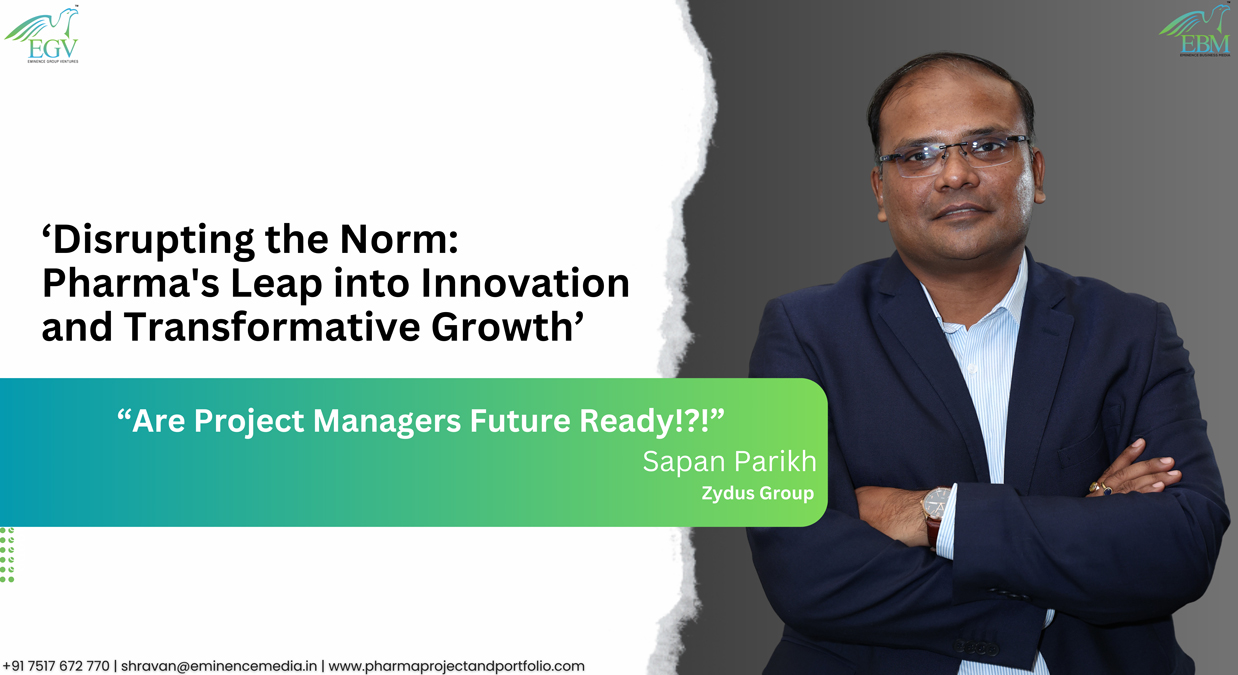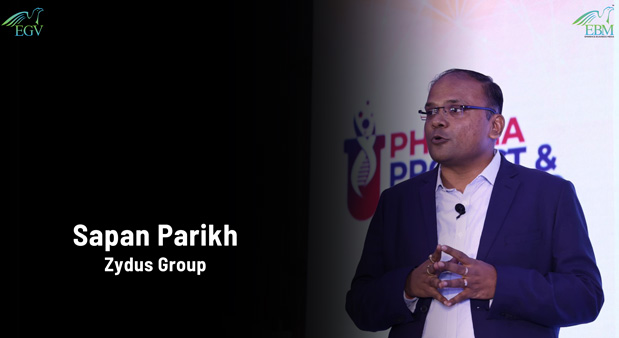
“Change in inevitable, and the disruption it causes often brings both inconvenience and opportunity”
- Robert Scoble
Disruption as defined by Cambridge dictionary is an interruption in the usual way that a system, process, or event works.
The pharmaceutical industry is undergoing significant disruption due to rapid technological advancements, evolving market demands, and changes in regulatory environments. These disruptions present challenges, but they also offer opportunities for innovation and growth. Understanding these challenges from both the perspective of companies and project managers (PMs) can provide valuable insights into how to navigate this evolving landscape.
Core Issues Companies Face When Navigating Disruption
1. Challenges in Established Firms:
a. Ingrained Processes and Systems:
- Legacy processes, optimized for traditional business models, create resistance to adopting innovative practices.
- Established workflows may lack the flexibility required to integrate disruptive technologies and adapt to market shifts.
b. Cultural Inertia:
- Established organizations often prioritize risk-averse decision-making, hindering experimentation with novel but uncertain opportunities.
2. Three Drivers of Organizational Capability:
a. Resources:
- Tangible: Advanced technologies, adequate funding, and infrastructure to support innovation.
- Intangible: Intellectual property, brand equity, and specialized expertise must be redirected to align with future-facing opportunities.
b. Processes:
- Decision-making frameworks must become agile and data-driven to respond effectively to disruption.
- Simplified and adaptable workflows enable quicker pivots toward emerging needs.
c. Values:
- Organizations must cultivate a culture that balances profitability with experimentation, embracing smaller, low-margin innovations that may hold long-term potential.
d. The Dilemma of Disruption:
- Sustaining Innovations: Incremental innovations that align with existing capabilities and processes often fail to disrupt the status quo.
- Disruptive Innovations: These are innovations that may perform poorly on traditional metrics but address emerging market needs. However, their introduction often conflicts with established business models, requiring companies to change their internal processes and value systems.
How Project Managers Are Impacted by Disruption
In this dynamic landscape, project managers within pharmaceutical companies must navigate various disruptive forces while maintaining the effectiveness of their projects. These disruptive forces include advancements in technology, external partnerships, and the growing complexity of projects.
- Adoption of New Technologies or Dosage Platforms
The integration of new technologies significantly affects the pharmaceutical development process.
- Understanding the Impact: PMs must be prepared to understand the impact of new tools and platforms on the project timeline, cost, and regulatory submission requirements.
- Integrating Seamlessly: PMs need to adjust their activity lists and plans to accommodate the integration of new technologies while balancing the demands of quality, cost, and timelines.
- Mitigating Risks: New technologies can introduce uncertainty. PMs must identify potential risks and develop strategies to mitigate them, ensuring that disruption does not derail the project.
- Enhanced Collaborations with External Partners
 Collaborations with biotech firms, universities, and partner companies are becoming increasingly common in the pharmaceutical industry. While these partnerships provide valuable resources and expertise, they also introduce complexities.
Collaborations with biotech firms, universities, and partner companies are becoming increasingly common in the pharmaceutical industry. While these partnerships provide valuable resources and expertise, they also introduce complexities.
- Clear Coordination: Project managers need to manage coordination between diverse teams from different organizations, ensuring clear communication, shared goals, and aligned project objectives.
- Managing Cultural Differences: Working with external partners from various backgrounds can lead to challenges. PMs must ensure that any cultural barriers are addressed and that conflicts are resolved effectively.
- Legal and Compliance Challenges: Given the stringent regulatory environment of the pharmaceutical industry, PMs must ensure that all collaborations comply with legal and regulatory requirements while aligning project timelines and costs.
- Technology Advancements
The rapid pace of technological advancements, particularly in areas like AI, machine learning, and big data analytics, is transforming project management practices.
- Data-Driven Decision Making: PMs must leverage data analytics to make more informed decisions, assess risks, and identify opportunities for process optimization.
- Automation and Digitalization: The adoption of digital tools for project tracking, supply chain management, and other tasks helps improve efficiency. However, PMs must remain adaptable and quickly incorporate these tools into their workflows.
The Impact on the Triple Constraints: Cost, Timeline, and Scope
These disruptive forces place additional pressure on the traditional project constraints:
- Cost: New technologies and external partnerships often lead to increased costs. PMs must manage these costs effectively, ensuring that investments lead to real value for the project.
- Timeline: Technological integration or coordination with external collaborators can introduce delays. PMs must set realistic timelines that consider these disruptions and manage stakeholder expectations.
- Scope: The scope of pharmaceutical projects can be fluid, especially with the introduction of new technologies or ongoing collaborations. PMs must manage scope creep carefully, ensuring that project objectives are met without overextending resources or adding unnecessary delays.
Are Project Managers Future-Ready?
To successfully navigate disruption, project managers in the pharmaceutical industry must embrace adaptability and innovation. Here are some ways they can prepare:
- Continuous Learning: Staying updated on technological trends, regulatory changes, and industry best practices is crucial for maintaining relevance.
- Developing Cross-Functional Skills: PMs should expand their skill set to include expertise in areas like data analytics, risk management, and collaborative leadership.
- Embracing Agile Methodologies: Given the fast-paced nature of disruption, adopting agile project management practices like Scrum or Kanban allows PMs to remain flexible and respond quickly to changes.
- Building Strong Relationships: Effective relationship-building with internal and external stakeholders is key to navigating disruptions and keeping projects on track.
Conclusion
 Disruption in the pharmaceutical industry demands that companies and project managers adopt a forward-thinking, adaptable approach. Organizations must revamp their resources, processes, and values to remain competitive. Meanwhile, PMs must embrace innovation, sharpen their skills, and leverage agile methodologies to deliver value amid change. By turning challenges into opportunities, both companies and project managers can position themselves as leaders in an industry poised for transformative growth.
Disruption in the pharmaceutical industry demands that companies and project managers adopt a forward-thinking, adaptable approach. Organizations must revamp their resources, processes, and values to remain competitive. Meanwhile, PMs must embrace innovation, sharpen their skills, and leverage agile methodologies to deliver value amid change. By turning challenges into opportunities, both companies and project managers can position themselves as leaders in an industry poised for transformative growth.


Well written!
Very well thought of and relevant too
Really informative article. Well written.
Informative and engaging!
Really insightful
Fabulous
This is such an informative and insightful article.
Nicely Articulated
Very informative